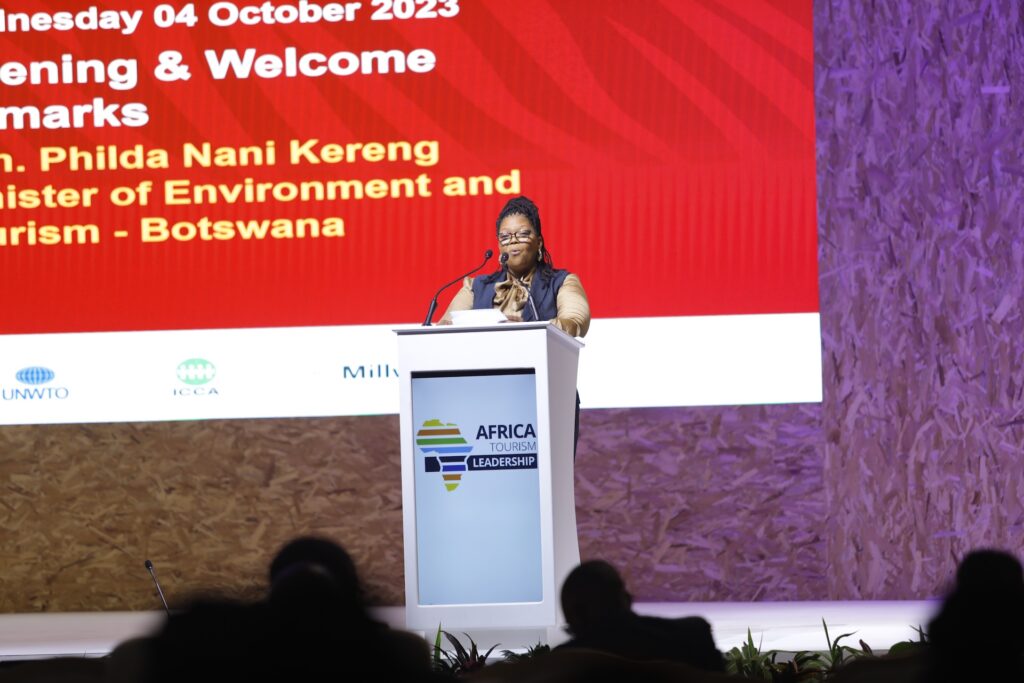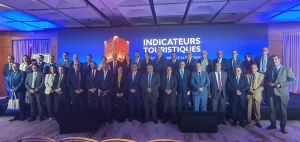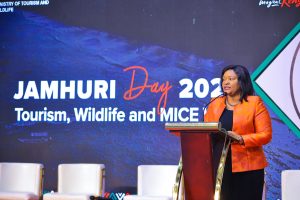The 6th Africa Tourism Leadership Forum (ATLF2023), in Gaborone got off to a great start with the convergence of top brass of the continent’s tourism and travel industry at the Gaborone International Convention Centre exploring the potential of culture, the creative industries, small and medium enterprises (SMEs) and innovation in shaping the future of Africa’s tourism landscape.
Botswana’s Minister of Environment and Tourism, Philda Nani Kereng, delivered a compelling address at the opening of the event, highlighting the need to synchronize these sectors to fully open up opportunities for industry stakeholders and young people.
In her welcome to delegates from nearly 40 countries, Minister Kereng emphasized the significance of the African Continental Free Trade Area (AfCFTA) in promoting intra-Africa trade, including tourism and culture, setting the stage for discussions under the theme, “Shifting Demand Dynamics to Shape the Future of intra-Africa Travel.”
Minister Kereng underscored the invaluable cultural heritage of Africa, stating, “Most activities in the realm of culture are natural talents that individuals are endowed with, representing a nation’s intangible heritage.” Her words stressed the role of culture as a catalyst for tourism and SME development.
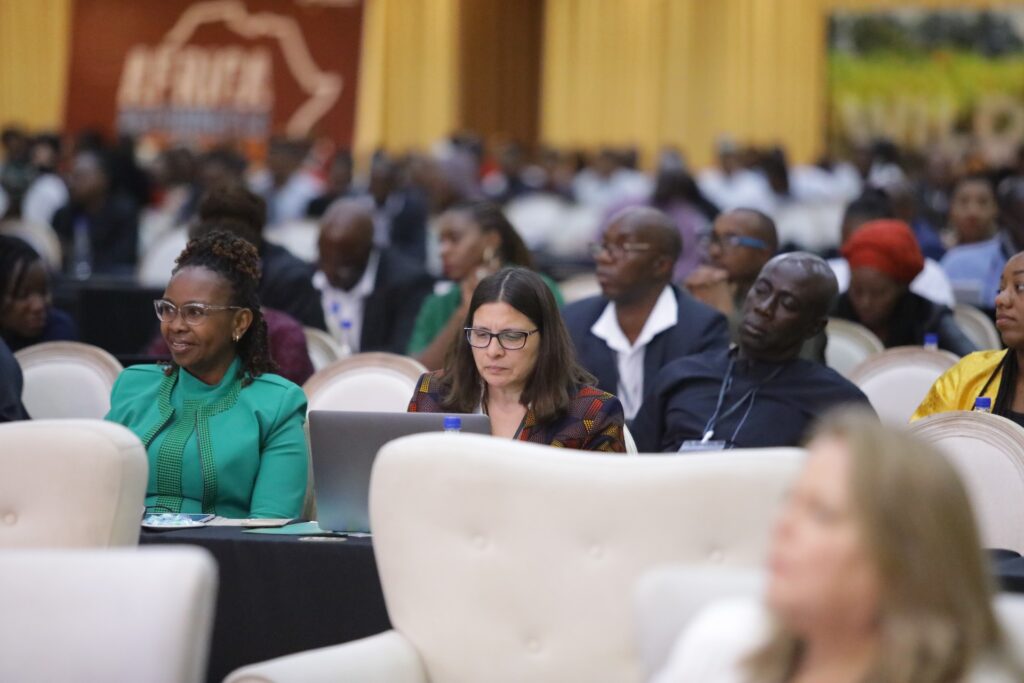
Highlighting the impact of SMEs on the economy, Minister Kereng noted, “SMEs, despite their size, have a profound influence, outnumbering large firms and playing a pivotal entrepreneurial role, contributing to innovation.”
The Minister also stressed the transformative potential of SMEs in promoting inclusivity, stating, “SMEs offer substantial opportunities for integrating women and youth into tourism value chains, particularly within creative and cultural sectors.”
Minister Kereng recognised the vital role of Community-Based Organizations (CBOs) from across Botswana, commending their contribution to sustainable tourism by integrating nature and cultural practices. She remarked, “Local communities lead in promoting sustainable tourism, generating much-needed local jobs, especially for the youth.”
Concluding her speech, Minister Kereng emphasized the importance of incorporating innovative technological solutions into the tourism industry, stating, “Innovative technology adoption will support existing supply chains and foster new ones, such as digital tourism.”
In a forum marked by a common dedication to utilizing culture, small and medium-sized enterprises, the creative sector, and innovation, Minister Kereng’s speech offered valuable perspectives on how these components can play a significant role in shaping the future of African tourism.
The first day of the ATLF2023 was dedicated to AfCFTA’s impact on promoting tourism through culture and the creative industries. Five moderated sessions explored different aspects of the AfCFTA Secretariat’s approach to maximizing opportunities in tourism, culture and creative industries, aligning with Africa’s development agenda.
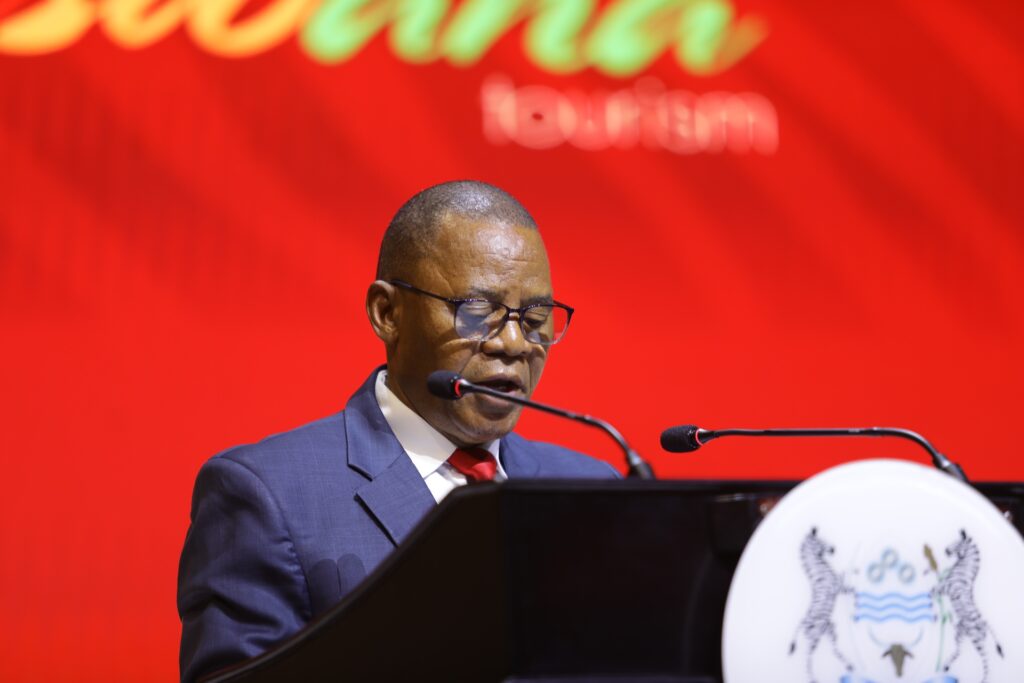
A high-level panel discussion led by Emily Mburu-Ndoria, Director of the Directorate of Trade in Services, Investment, Intellectual Property Rights and Digital Trade (DTIID) at the AfCFTA Secretariat, initiated the discussions.
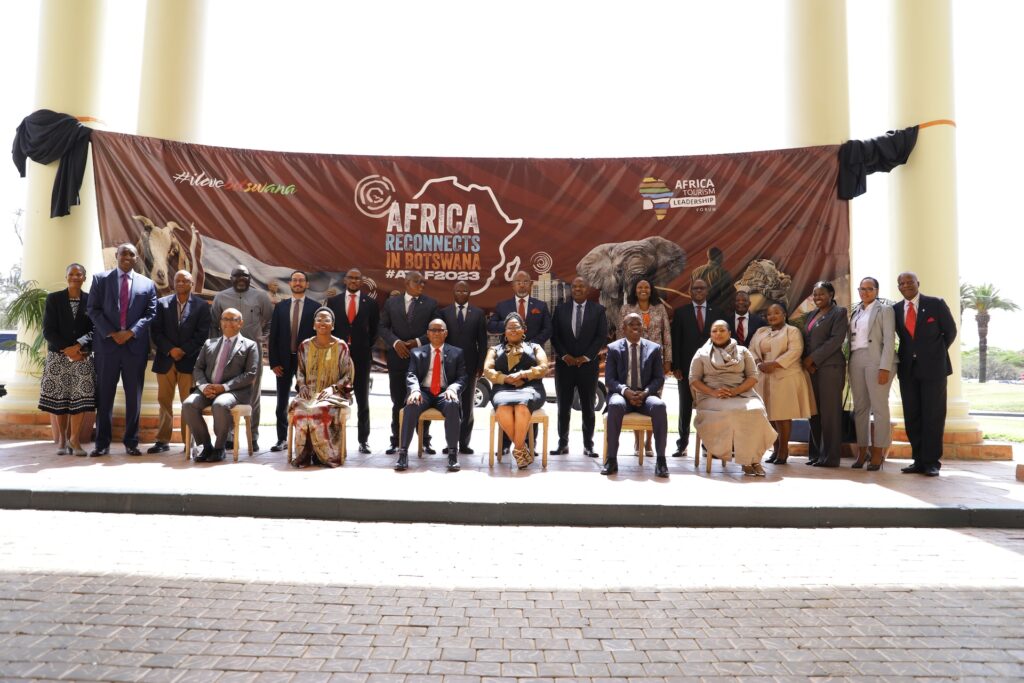
The sessions delved into topics such as the relationship between franchising and tourism sector development, the contribution of creative and cultural Industries to Intra-African Trade under the AfCFTA and facilitating the movement of tourism professionals within the AfCFTA framework.
Notably, day one saw the endorsement of the Africa Tourism Private Sector Alliance (ATPSA) by the Africa Continental Free Trade Area (AfCFTA) Secretariat.
The official opening ceremony was performed by Botswana’s Vice President, Slumber Tsogwani, marking the commencement of the three-day event.
Click here to view pictures from the opening day


